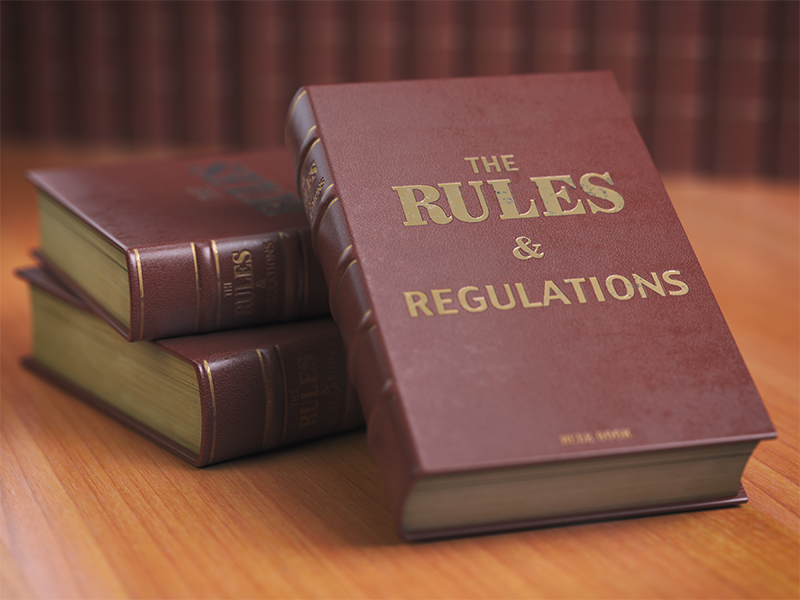Section 182 of the Indian Contract Act, of 1872 defines the relationship between Agent and principal. According to the said section, an agent is a person employed to do any act for another or to represent another in dealings with third persons. The person acting on behalf of the other is called an agent, and the person from whom the agent derives authority to act is called the principal.
Example: When a bank collects cheques, bills, and other instruments for customers, the relation between the bank and customer is that of the Principal and Agent. The bank also makes regular payments of insurance premium rent etc. as per standing instructions received from the customer. In the above cases also the relation between the bank and the customer is between the Principal and the agent. The bank acts as the agent and the customer the principal.
In this context, Section 131 of the NI Act 1881 protects the collecting bank as an agent for collection. Section 131 of the NI Act provides that “A banker who has in good faith and without negligence received payment for a customer of a cheque crossed generally or especially to him shall not, in case the title to the cheque proves defective, incur any liability to the true owner of the cheque by reason only of having received such payment.”
Essentials of Agency
Competency of Principal (Section 183):
As per section 183 of the Indian Contact Act, of 1872, the principal should be competent to form a contract. That is, he must be of the age of majority, is of sound mind and he is not disqualified by the law for the contract of agency.
Competency of Agent (Section 184):
As per section 184 of the Indian Contact Act, of 1872, the capacity of an agent in the contract of agency is immaterial. Any person can become an agent between the principal and the third person. However, the agent is not liable to the principal unless he has attained the age of majority and is of sound mind.
Consideration Not Necessary (Section 185):
According to Section 185 of the Indian Contact Act, of 1872, consideration is not an essential element for the creation of an agency. Hence no consideration is required to be presented during the formation of an agency.
The extent of an agent’s authority depends on the terms of the agent’s appointment or the circumstances of the case. The contractual authority of an agent is the real authority. But, implied authority means all that is incidental to carry out the contractual authority. Thus, implied authority is the apparent or ostensible authority. Hence, an agent who has the authority to do a certain act also has the authority to do all that is lawful to perform this act. Also, an agent has the authority to do anything that prevents the principal from any loss or damage. Under Section 209 of the ICA when the principal’s death or unsoundness causes the termination of the agency, the agent must protect and preserve the interests entrusted to him on behalf of the representative of the deceased principal.
Appointment of sub-agent is prohibited:
Section 190 of the Indian Contract Act, of 1872 prohibits an agent to appoint a sub-agent. However, under certain exceptional circumstances as Agent has the power to appoint a sub-agent and delegate his power to the sub-agent. Section 190 of the Indian Contract Act is based on the maxim ‘Delegatus non-protest delegare’ which means, a delegate cannot further delegate. An agent appointed to work on a specific task cannot delegate that task to another because the principal chooses as an agent a particular person. After all, he responds to trust and confidence in such a person.
Duties and responsibilities of an agent:
Duty to protect and Preserve the Interest entrusted to him:
Section 209 of the Indian Contract Act States that when the principal’s death or unsoundness causes the termination of the agency, the agent must protect and preserve the interests entrusted to him on behalf of the representative of the deceased principal.
Duty to Execute the Mandate:
Section 211 of the Indian Contract Act, of 1872 provides that an agent shall act within the scope of authority that his principal confers upon him. Also, he shall strictly follow the directions of his principal. However, in the absence of express instructions from his principal, he shall follow the custom prevailing at the place where he carries out his business, in a similar type of business.
Duty to Act with Care and Skill:
Section 212 of the Indian Contract Act, of 1872 provides that the agent shall work with reasonable skill and diligence. Also, where the nature of the agent’s profession requires him to possess a special skill, he shall exercise the skill that a member of that profession will exercise.
Section 212 covers another role of the agent. This law requires an agent to conduct agency business with due care and caution.
Duty to Render Proper Account:
Section 213 of the Indian Contract Act provides the duty to render proper account. On-demand, the agent should show the relevant accounts to the principal. It binds the agent to keep the money and property of the principal separate from his own. The agent is responsible for maintaining accurate records of the property he receives as part of his duties and providing those records to the principal on request. Section 213 also states that an agent under the duty shall not disclose any confidential information of his principal.
Duty to Communicate with the Principal:
As per Section 214 of the act, in cases of difficulty, the agent must use all reasonable diligence in communication with his principal and seek to get his instructions.
Not to compete with the Principal:
Section 215 of the Indian Contract Act, of 1872, provides that an agent shall not compete with his principal. In other words, his interest shall not conflict with his duty. The agent must keep true and fair accounts and prepare them on reasonable notice to render them.
Shall not make any secret profit:
Section 216 of the Indian Contract Act, of 1872 states that an agent shall not make any secret profit and shall disclose any extra profit he makes to the principal. Where the principal finds that the agent is making secret profits, he may dismiss the agent without notice, recover the amount of profit, and also refuse to pay him his remuneration. He may also repudiate a contract where a third party is also involved in the fraud and recover the damages.
Rights and Duties of Agents:
According to Section 217, the right of retainer means the agent has the right to hold or retain the money accrued to an agent in the due course of conducting a business act as guided by the principal. The agent can retain money to clear the dues of the remunerations also.
Agent’s duty to pay sums received for Principal:
Section 218 of the Indian Contract Act: The Act states that subject to such deductions, the agent is bound to pay to his principal all sums received on his account.
Right to Remuneration:
Section 219 of the Indian Contract Act, of 1872 provides that an agent has a right to receive the agreed remuneration or in the absence of agreement, a reasonable remuneration for rendering the services to the principal that are not voluntary or gratuitous. He becomes eligible to receive the remuneration as soon as he completes the work that he undertook. Receiving the remuneration from the principal is one of the rights of the agent.
Not entitled to remuneration if found guilty:
Section 220 of the Indian Contract Act, of 1872 states that an agent who is guilty of misconduct in the business of the agency is not entitled to any remuneration in respect of that part of the business in which he has misconducted. It means that the agent will lose his right to claim remuneration if an agent is found guilty of fraud or breach. Along with this, he will be liable to the principal for the compensation of loss or harm caused due to the breach of duty.
Right of Lien:
Section 221 of the Indian Contract Act, of 1872 provides that in the absence of any contract to the contrary, an agent is entitled to retain goods, papers, and other property, whether movable or immovable, of the principal received by him until the amount due to himself for commission, disbursements, and services in respect of the same has been paid or accounted for to him.
Right to Indemnity
Section 222 talks about ‘Right of indemnification’ for lawful acts:
Section 222 of the Indian Contract Act, of 1872 provides that the employer of an agent is bound to indemnify him against the consequences of all lawful acts done by such agent in the exercise of the authority conferred upon him. The principal is sure to indemnify the agent against all consequences of lawful acts wiped out the exercise of his authority.
Section 223 of the Indian Contract Act, of 1872 deals with the ‘Right of indemnification’ against acts done in good faith included under Section 222. Where the agent acts in good faith on the instruction of the principal, an agent is entitled to indemnification for any loss or damage from the principal.
Non-liability of employer of agent to do a criminal Act
Section 224 states that where one person employs another to do a criminal act, the employer is not liable to the agent, either upon an express or an implied promise to indemnify him against the consequences of that act.
Example: Ram employs Sham to damage Chintu’s car and agrees to indemnify him against all consequences of the act. Sham thereupon damages Chintu’s car and has to pay damages to Chintu for so doing. Ram is not liable to indemnify Sham for those damages.
Right to Compensation:
Section 225, of ICA says an agent is entitled to claim compensation for the injuries suffered as a consequence or want of skill of the principal.
Obligation of the principal arising from acts done by the agent:
Section 226 states that the contracts entered into through an agent, and obligations arising from acts done by an agent, may be enforced in the same manner and will have the same legal consequences as if the contracts had been entered into the acts done by the principal in person.
Termination of Agency
The relationship between principle and agent comes to an end, it’s known as termination of agency. Section 201 to 210 of the Indian Contract Act, of 1872 deals with the termination of an agency. Agency may be terminated two ways: By the Act of the Parties and By Operation of Law.
By the Act of the Parties:
Revocation by Mutual Agreement:
The agency of contract can be terminated at any time by mutual agreement between the principal and the agent.
Revocation by the Principal:
The agency can be terminated by the principal by revoking the agent’s authority.
The principal can revoke his agent’s authority when it has not been exercised by the agent reasonably, notice must be given for such revocation.
By Renunciation of An Agent: Renunciation means withdrawing from responsibility as an agent. Like the Principal, the Agent can also renounce the agency.
Termination of Agency by Operation of Law:
Termination of an agency can also occur through the operation of law, which means that certain events or legal circumstances automatically bring an end to the agency relationship. These situations are beyond the control of the parties involved and are predetermined by law.
Related Posts:






